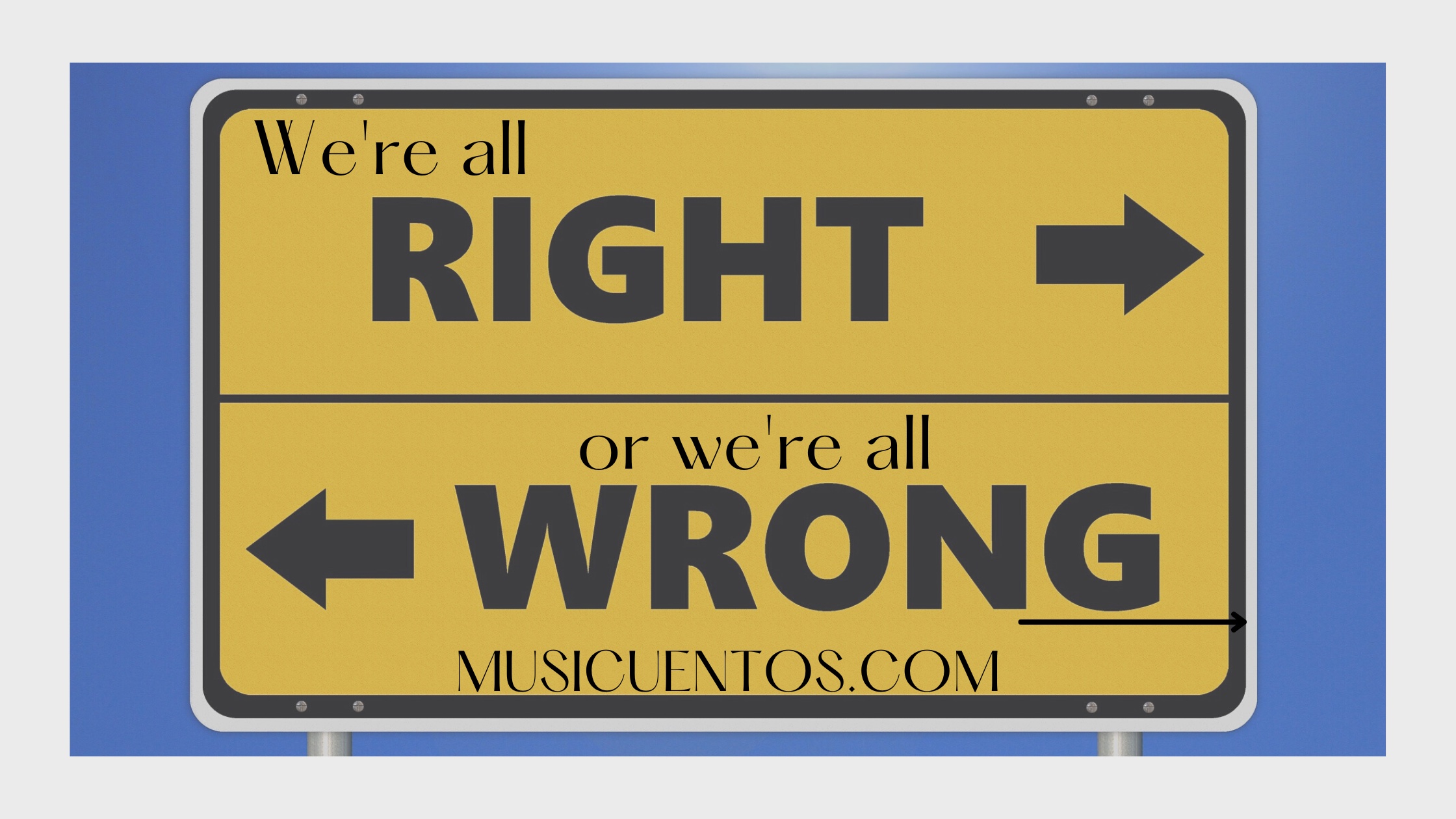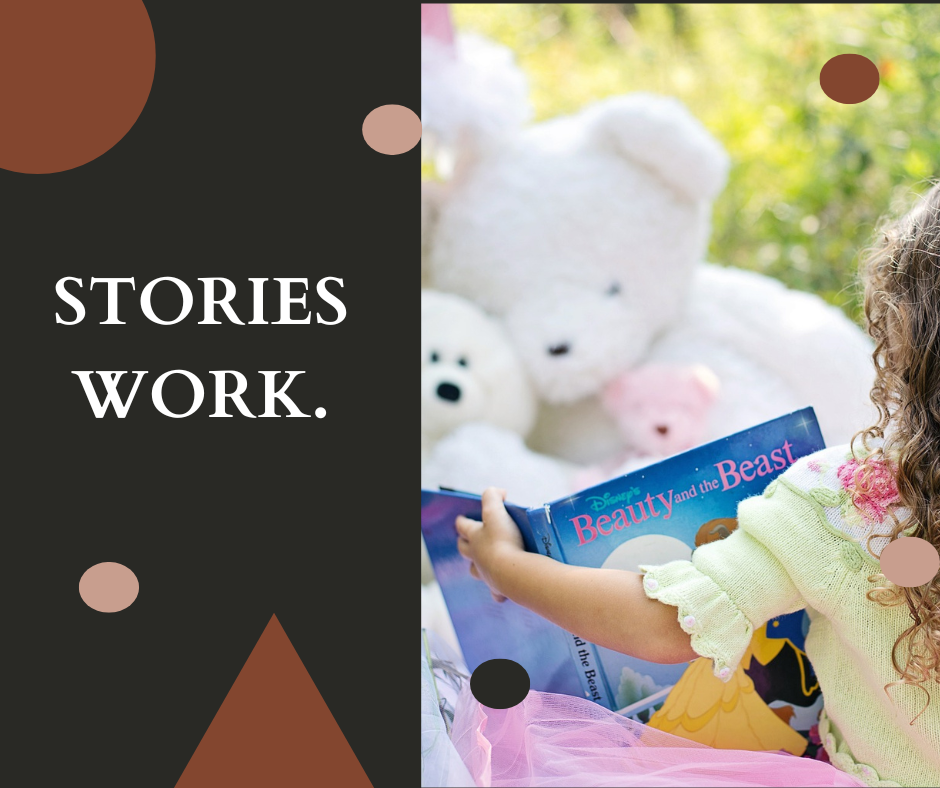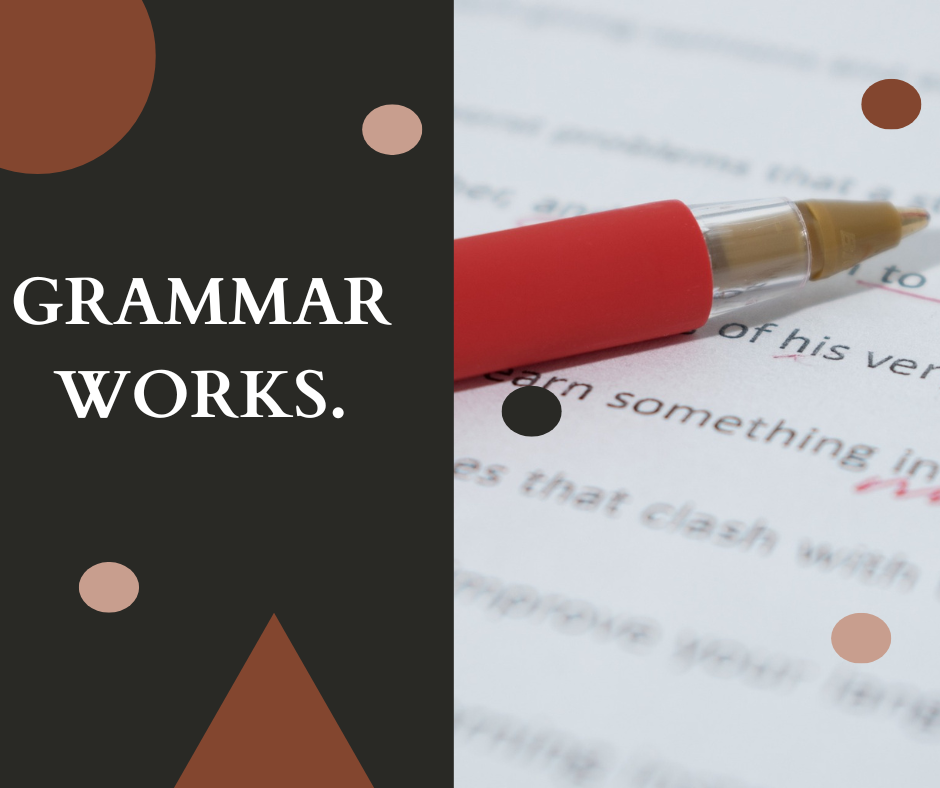In the language teaching field, we have a long, treasured history of arguing and drama. We may agree or disagree on classroom setup, teacher recruitment efforts, and the best ways to encourage learners to study abroad, but primarily, our arguments center on one question:
What works (or doesn’t work) for successful language acquisition?
In true Sra. Musicuentos style, I want to jump back into the conversation by addressing this question, with thanks to little birds keeping me up-to-date on the status of this argument. It seems we’re still on it, we’re still after each other about it, and we’re still sure that each one of us has the “right” answer.
tl;dr- Here’s my view:

We get really lost in the weeds when we start assuming researchers have proven just about anything about language acquisition and learning. There’s a reason the brain is called the “black box” in this process. But let’s start by agreeing on the one thing that is irrefutable: People have *learned* and *acquired* languages for a long, long time.
You can peruse the shelves at a peddler’s mall and find language learning textbooks from generations past. You can see it in the pages of ancient literature. As long as people have wanted to foster communication in or understanding of another language, there have been language learners, and language teachers.
Just take a look at some of Thomas Prendergast’s work, including this 1875 “Manual of Spanish for Englishmen” and more: “manuals of French, German, Hebrew, and Latin.”
We can argue about who had access to language learning, or how quickly they did so, or any number of other details, but shockingly, people learned languages before the phrase Comprehensible Input came into fashion. Indeed, people learned languages before Stephen Krashen was a twinkle in his parents’ eyes. And they learned them well. They could communicate. Ben Franklin could solve global problems in four languages (or five, but does one really solve global problems in Latin?).
So, next time you’re tempted to buy into a narrative that tells you one thing works and something else doesn’t – or worse, tempted to tell someone on social media that the strategy / activity / worksheet they’re excited about “isn’t going to work,” take a deep breath and think outside your absolutes.
In no particular order, here are a few examples of what I mean when I say everything works.
Storytelling works.
My blog is called Musicuentos (cuentos being the Spanish word for “stories”). Of course I’m a fan of stories! The strategies involved in TPRS changed my teaching world.
 Here’s the thing about storytelling teachers: all of us work differently. We bring our own philosophy and our own personalities to the story. For me, every great story includes at least these three things:
Here’s the thing about storytelling teachers: all of us work differently. We bring our own philosophy and our own personalities to the story. For me, every great story includes at least these three things:
- Consistency: Unlike most storytelling teachers, I try to fight the problem of time limits by patterning my stories. Stories will focus on a particular skill: what someone is doing right now, adjectives that describe places, adding –mente to make an adjective an adverb, etc.
- Cartooning: Some basic skills will help you draw funky illustrations – your learners will love them, and it will help you stay in the TL!
- Cool content: Throwing in something funny and/or in line with what interests your audience keeps them more engaged.
(Here’s another post with some more suggestions, including simplicity, goal-setting, and constant questioning.)
Here’s the thing: don’t be surprised when some of your learners label your crazy storytelling strategies dumb, repetitive, random, and confusing. For learners who won’t engage with my storytelling, it can’t work, scientifically speaking. Disengaged means not acquiring language.
Still, becoming part of a story is primarily how we learned our first language, learned about our heritage, learned how to carry on a legacy. I’m in the camp that believes that if we try to mimic that magic that happened in our first language, second language acquisition is more effective (and fun!). Be comprehensible, and tell some stories!
Grammar explanations work.
You won’t be teaching long before you have some grammar-sensitive learners push you for explanations. Why am I supposed to change this ending? Why do these words have this suffix in common? Go ahead, give in – briefly. I actually structure – and even color-code – input to help learners notice grammar patterns, and I’m not sorry.
 To be sure, for some, grammar explanations help not at all. I invite those kids to tune me out for a minute. But also to be sure, grammar does help some learners improve their accuracy.
To be sure, for some, grammar explanations help not at all. I invite those kids to tune me out for a minute. But also to be sure, grammar does help some learners improve their accuracy.
I know enough to know what I don’t know, so I’m not going to swear to this, but let me describe an example from what I think happens in my own brain. I am one of those people who cares about about language accuracy. Like really cares, all the way to the holy grail of verbal gymnastics in Spanish, the past subjunctive. I often explicitly decide, while I am speaking, whether a verb should be in the past subjunctive. Then, if I haven’t used that verb in a while, I go through the mental process to put the verb in the past subjunctive
third person plural preterite.
drop the -ron.
add -ra or -se ending
and then I say the word – and I do all of this so fast that you very likely can’t tell. A computer could measure the delay, but you couldn’t.
Let me focus on that statement: the real argument behind whether language can be learned versus acquired is an issue of speed. The prevailing theory is that speakers access learned language more slowly (with higher mental cost) than acquired language. Here’s my take on that: only linguist researchers care about this delay, and only they should.
– BUT: Check out my post from a dozen years ago, “A case for avoiding pet grammar.” –
Music works
Hey, I am Sra. Musicuentos after all. In addition to stories, music is my favorite medium for teaching language. It captivates learners of all ages. I might use a song that is written for learners and they understand the majority of it. I might use a pop song that only has one or two focus phrases I’m working on. The key is to know your goal for the song, and to know that (in my opinion) music hones these skills like little else:
 Separating words
Separating words
Most language learners complain about how fast the native speakers use language. This is so true with my learners working on their Spanish. I find that it isn’t so much that people speak faster than others. It’s more that learners struggle to identify where a word stops and the next word begins.
When we listen to music in my class, this is our mantra:
You can listen and watch, or you can sing and watch, but you can’t not watch.
I’ve had my current students a total of 5 class periods right now, and they could give you this mantra verbatim.- Pronunciation
I like to always be learning language, and right now, I’m working on my novice French and Russian skills. With both, I have to tell you, the pronunciation factor is a killer. Even when I can read the French, if I try saying it out loud, it comes out pretty wonky. So I focus on tools that offer me both the written and the spoken word, like Duolingo- or music. Remember, we’re watching the lyrics while we listen or sing, and I’ve found this to be invaluable for internalizing pronunciation. - Intuition for phrases
You know those beastly phrasal verbs in English? I teach ESL to refugees and other newcomers and let me tell you, these are one of the toughest structures to acquire. We have all these verbs that take on a preposition to help their meaning, but you can’t use them interchangeably. You can get in the bus or get on the bus, but you can’t get on the car, unless you’re in a parade or something. When the bus stops, you can get out or get off. Get ready, get up, get dressed, get out, get down from there, or off of there, but not usually off from there!
I don’t know about the language you teach, but Spanish has some of these as well, though not nearly as many as English. There are many verbs that natives choose to follow with por or para, a, en, de, etc. Music uses natural language and helps develop a learners’ intuition for these phrases and many other kinds, as well. - Less academic language
I remember learning lots of words from my vocabulary textbook that I later learned are not widely used by native speakers. Unhelpful! You know what is full of language that real people on real streets are using today? Pop culture, including music! Kids want to know and use real language, and to learn it, they need to hear how people are really using language. Granted, some music gets pretty creative with structures that aren’t part of everyday conversation, but particularly for popular vocabulary choices and play with language, music is golden.
– My post “Top 20 Songs for Spanish Class” is the top Musicuentos post ever. –
The one question that overrules it all
I hope I’ve helped you think for a moment the next time you’re tempted to tell someone that a selected strategy “doesn’t work.” Perhaps qualify it – the strategy probably wouldn’t work for the majority of learners you work with. Perhaps ask a few questions: what level? what class size? what demographic? Or, ask the question that overrules all our allegiance to any particular story, song, worksheet, or textbook:
Will this help this learner communicate?
Speaking of magic bullets, don’t forget there’s really only one factor that trumps them all.
Here’s what I’ve realized: I actually don’t need my learners to develop advanced proficiency. I don’t. Most of them will not. And that’s fine. At Intermediate proficiency most learners can accomplish what they need to. In the economy of time, it’s enough. It may not enough to be a diplomat, but it’s still enough. And in that journey, everything works for someone, and nothing works for everyone. So, go ahead and try it, and let’s be a little less judgy, eh?
4 Comments
Comments are closed.




I was looking for some authentic listening for my students and remembered mi amiga Sara and musicuentos. So I did a search and happily found that you are back! Beinvenida amiga! I will be following! In the meantime I will search in your archives for resources! Muchas gracias!
Contact me anytime, amiga – always glad to help!
I have missed you. I used to follow you years ago, but then life happened. I hope you are doing well. I’ll have to start following you again.
Welcome back, Loly – thanks for your comment!